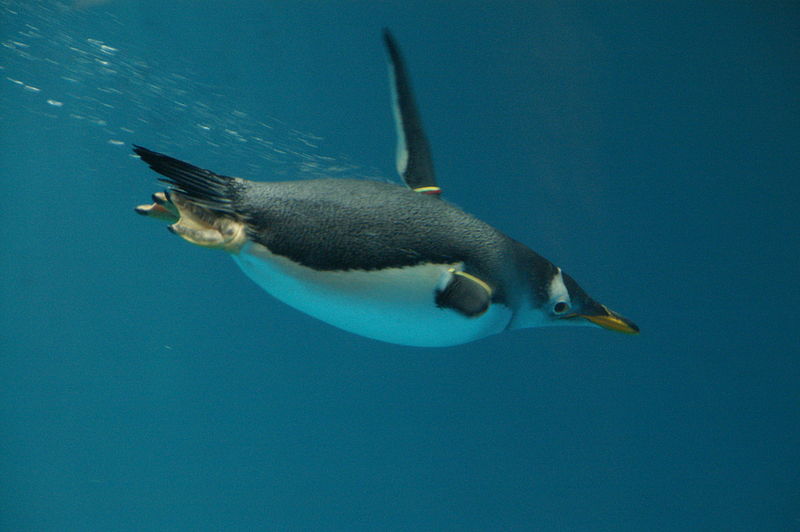Please note: Osher Rainforest will be closed for maintenance Jan. 14–16.
Science News
Why Fly When You Can Dive?
May 21, 2013
by Molly Michelson

In life, you must make choices. You can’t succeed at everything. For example, Tiger Woods is an excellent golfer, but a terrible husband. Shaquille O’Neal? Great at basketball, but acting? Not so much. (Bo Jackson could be the exception.)
Penguins realized this about 70 million years ago, when they gave up flying for diving and swimming. Now, a study in the Proceedings of the National Academy of Sciences explains why.
Researchers from the University of Manitoba studied murres, a type of auk—a family of birds that is similar to penguins but not at all related. Apparently, this species didn’t get the message about excelling at one skill. The murres both fly and swim. But research shows the dual skills come at a very high cost.
The scientists measured the energy usage of the birds. According to National Geographic News Watch,
They injected the birds with stable isotopes of oxygen and hydrogen to serve as tracers to mark the physical costs of their activities.
The team found that when flying, the murres’ sustained the highest metabolic rates ever measured for any animal. (Previously, the bar-headed goose held the record, but they are the world’s high-altitude flying champions.) In fact, the energy costs of the murres were 33% higher than the biologists expected after doing biomechanical modeling of the bird. The birds are sufficient swimmers, but researchers found that the birds’ energy costs while swimming were higher than penguins, who are specialists in the sea.
Lead-author Kyle Elliott remarks in both Nature News and ScienceNOW that the murres are at “the edge of what a bird can do.” And the team suggests that such high flight costs may have led aquatic birds, like penguins, to develop their wings for propelled diving in response to foraging opportunities at increasing depths, behavioral adaptations that led, finally, to flightlessness.
In short, good flippers don’t fly well. But they’re great for swimming and diving. Fine choice, penguins.
Image: Ken FUNAKOSHI/Flickr